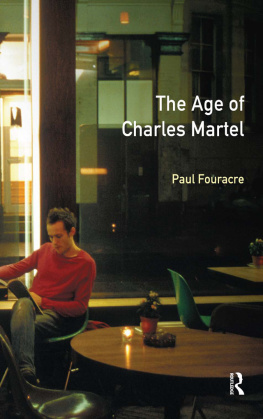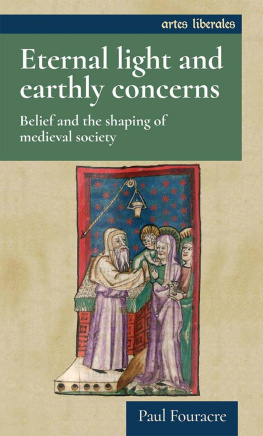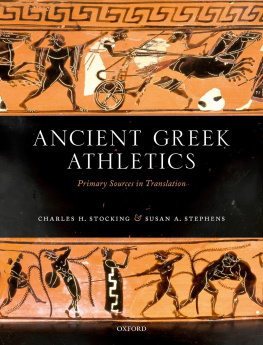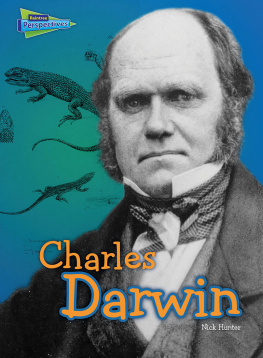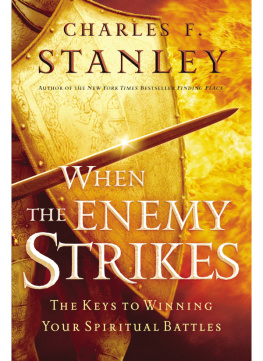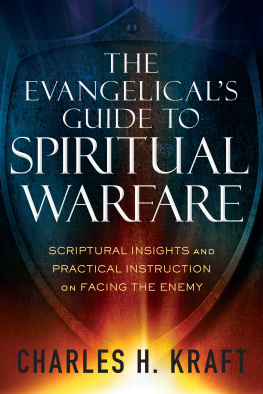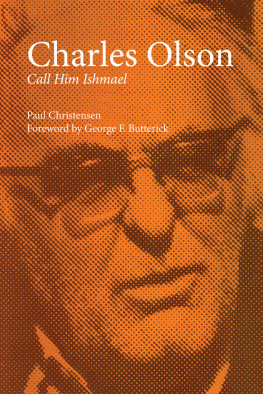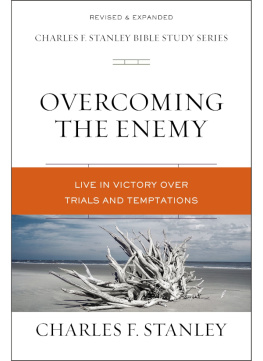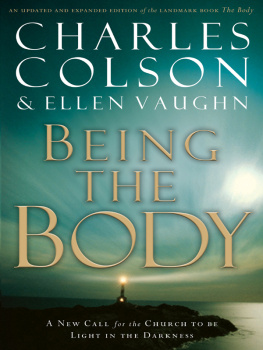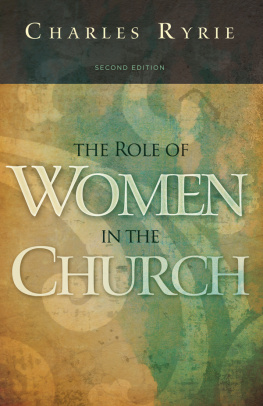THE AGE OF CHARLES MARTEL
THE MEDIEVAL WORLD
Editor: David Bates
| John Moorhead | Ambrose |
| John Moorhead | Justinian |
| Janet Nelson | Charles the Bald |
| Paul Fouracre | The Age of Charles Martel |
| Richard Abels | Alfred the Great |
| M.K. Lawson | Cnut |
| H.R. Loyn | The English Church, 9401154 |
| Malcolm Barber | The Cathars |
| James A. Brundage | Medieval Canon Law |
| John Hudson | The Formation of the English
Common Law |
| Lindy Grant | Abbot Suger of St-Denis |
| David Crouch | William Marshal |
| Ralph V. Turner | The Reign of Richard Lionheart |
| Ralph V. Turner | King John |
| Jim Bradbury | Philip Augustus |
| Jane Sayers | Innocent III |
| C.H.Lawrence | The Friars |
| David Abulafia | The Western Mediterranean
Kingdoms 12001500 |
| Jean Dunbabin | Charles I of Anjou |
| Jennifer C.Ward | English Noblewomen in the
Later Middle Ages |
| Michael Hicks | Bastard Feudalism |
The Age of Charles Martel
Paul Fouracre
First published 2000 by Pearson Education Limited
Published 2013 by Routledge
2 Park Square, Milton Park, Abingdon, Oxon OX14 4RN
711 Third Avenue, New York, NY 10017, USA
Routledge is an imprint of the Taylor & Francis Group, an informa business
Copyright 2000, Taylor & Francis.
The right of Paul Fouracre to be identified as author of this Work has been asserted by him in accordance with the Copyright, Designs and Patents Act 1988.
All rights reserved. No part of this book may be reprinted or reproduced or utilised in any form or by any electronic, mechanical, or other means, now known or hereafter invented, including photocopying and recording, or in any information storage or retrieval system, without permission in writing from the publishers.
Notices
Knowledge and best practice in this field are constantly changing. As new research and experience broaden our understanding, changes in research methods, professional practices, or medical treatment may become necessary.
Practitioners and researchers must always rely on their own experience and knowledge in evaluating and using any information, methods, compounds, or experiments described herein. In using such information or methods they should be mindful of their own safety and the safety of others, including parties for whom they have a professional responsibility.
To the fullest extent of the law, neither the Publisher nor the authors, contributors, or editors, assume any liability for any injury and/or damage to persons or property as a matter of products liability, negligence or otherwise, or from any use or operation of any methods, products, instructions, or ideas contained in the material herein.
ISBN 13: 978-0-582-06476-8 (pbk)
British Library Cataloguing-in-Publication Data
A catalogue record for this book is available from the British Library
Typeset by 35 in 11/13pt Baskerville MT
To my family.
Contents
Charles Martel and the Periphery: Relations with Aquitaine,
Burgundy, Provence, and the Regions East of the Rhine |
Charles Martel ( c. 688-741) is a figure of well-night heroic proportions in much twentieth-century historiography. At the heart of this reputation are the famous victory over an Islamic army at the battle of Poitiers in 732 or 733 and his contribution to the eventual establishment of his Carolingian descendants as the ruling family over the Frankish lands. He can be portrayed not only as saving Christendom in what is often seen as one of the decisive battles of world history, but as preparing the ground for the enormously important reign of his even better known grandson, Charlemagne. Since achievements on this scale would appear to demand special explanations, Charles has been identified not only as a great warrior, but as someone who prepared the way for the final deposition of the Merovingian kings in 751 by his son Pippin and who revolutionised the military organisation of the Frankish state. His patronage of missionary activities amongst the pagans to the east is seen as making the Carolingians into the papacy's favourite family, thereby explaining papal support for Pippin's removal of the Merovingians.
Paul Fouracre's new treatment of Charles and his times examines critically each element of this reputation and places Charles securely within the social, political and cultural setting of the eighth century. In order to do this, the book supplies a panoramic appraisal of power, kingship and aristocratic values, which leads to a reassessment of most aspects of Charles's career. The great warrior remains at the centre of the picture, but the long-term goals and innovative policies frequently attributed to him are for the most part rejected in favour of an analysis which sees him as an extremely able embodiment of the norms and values of contemporary politics. Thus, for example, while Charles's attitudes were certainly motivated by a family-centred drive to keep the Carolingians at the heart of the politics of the Frankish world, his success in regaining his father's position as mayor of the palace to the Merovingian kings was based on immediate personal concerns over status and power. The brief period at the end of his life when he did not install a new Merovingian king was an episode which his sons speedily brought to an end and which did not therefore lead inexorably to the disappearance of the Merovingians. Even the victory at Poitiers was one event in a broader struggle against Islamic attacks and should not be seen as the one decisive moment. The cooperation of missionaries, papacy and Franks largely conformed to already existing patterns.
Paul Fouracre's extensive research and publications on the history of the early medieval Frankish kingdoms make him a superbly qualified author to contribute this latest book to the Medieval World series. His skilful reinterpretation of key sources allows him to reassess many key later eighth- and ninth-century narratives whose prime purpose was to present Carolingian triumph as a logical and legitimate process. By stripping away this misleading veneer, he is able to give Charles Martel's life a much more realistic context and to use it for a wide-ranging reappraisal of the political life of the Frankish kingdom in the seventh and eighth centuries. The result is a book which illuminates the forces which both threatened and sustained the geographically vast kingdom of the Franks. Accessibly written and presenting every historical controversy clearly, the book fulfils magnificently the series' aim of using an individual's life to illuminate a wider subject.
David Bates
This book has been more than a decade in the making, or, rather, eight years of inaction followed the signing of a contract to write it, and then came two years of fitful writing. I must therefore thank David Bates, the series editor, and Longman, for their patience. I hope that I am wiser than I was when I first thought of writing a book about Charles Martel, and that the delay has allowed me to develop a more subtle understanding of this subject. The intervening period has certainly seen some excellent work on the subject of Frankish history, much to my benefit.

